MCLA students and faculty, in partnership with Gallery 51, are honored to partake in this participatory art project sponsored and organized by the Undocumented Migration Project (UMP), a non-profit research-art-education-media collective. The G51 Hostile Terrain exhibition is composed of ~3,200 handwritten toe tags that represent migrants who have died trying to cross the Sonoran Desert of Arizona between the mid-1990s and 2019 as well as the work of three west coast artists who were invited to broaden the many-sided conversation, representation and understanding of immigration to the US.
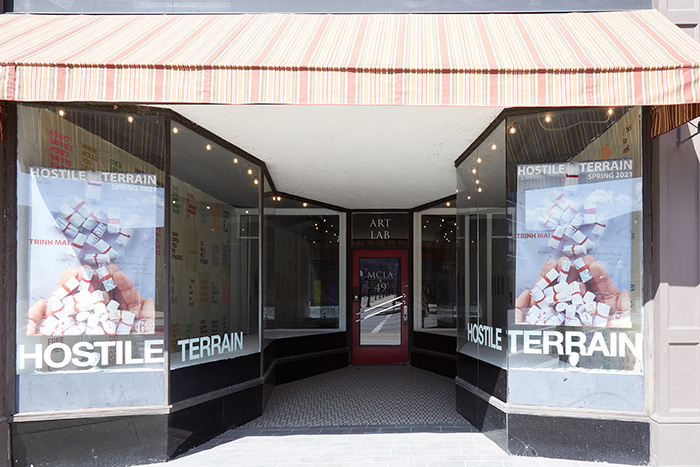
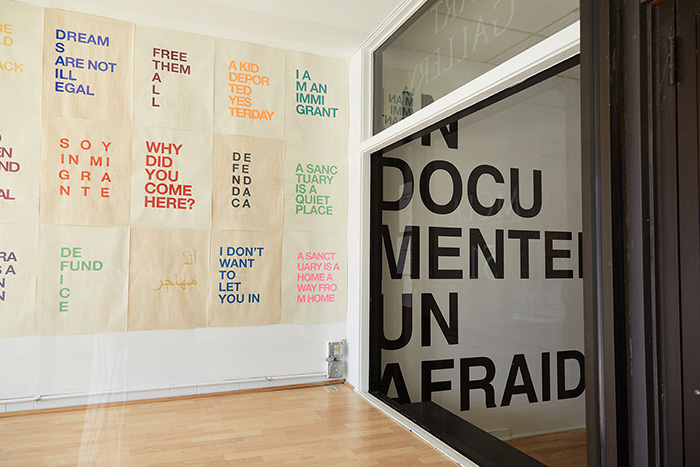
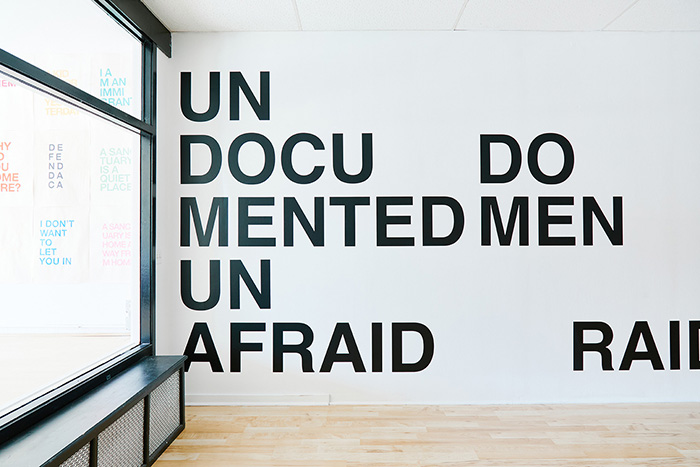
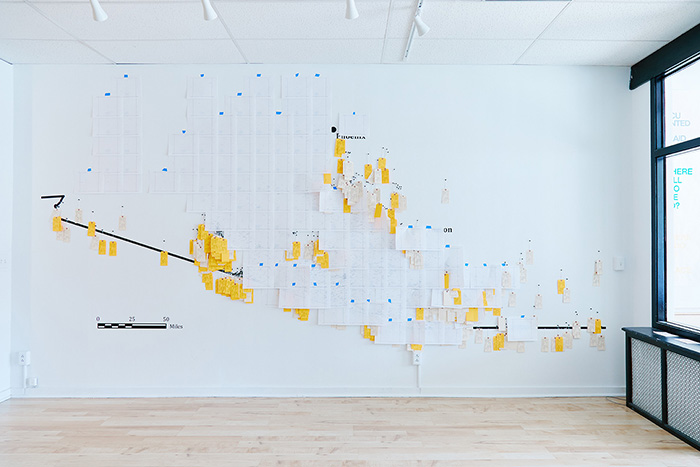
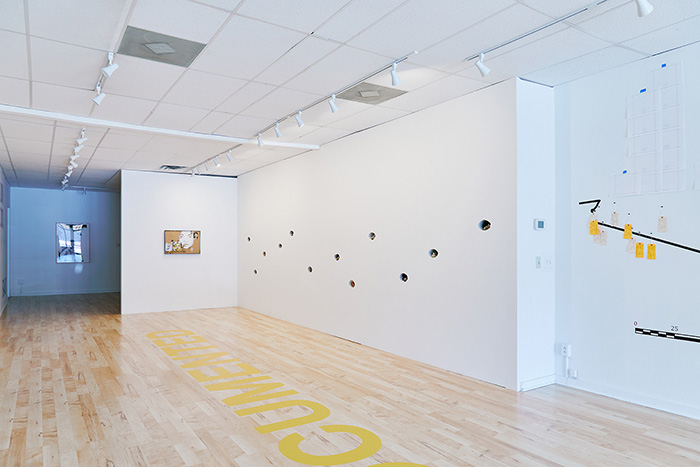
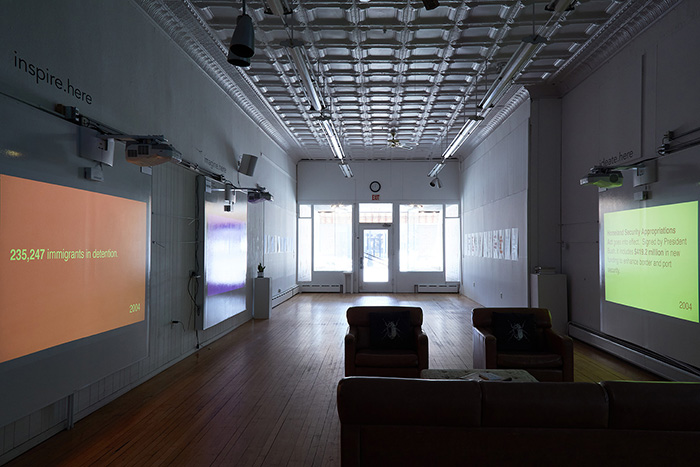
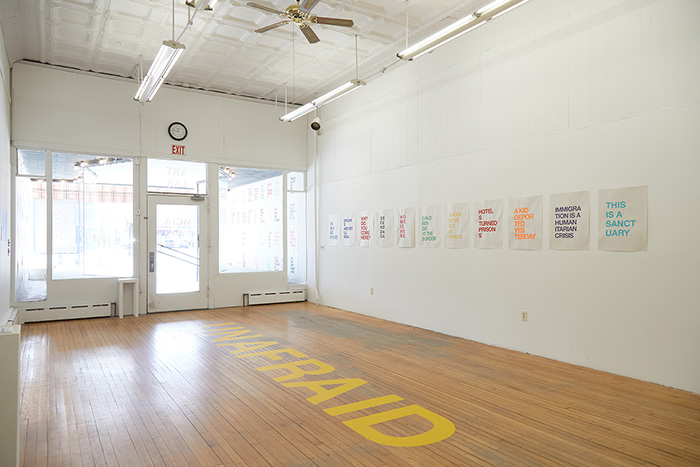
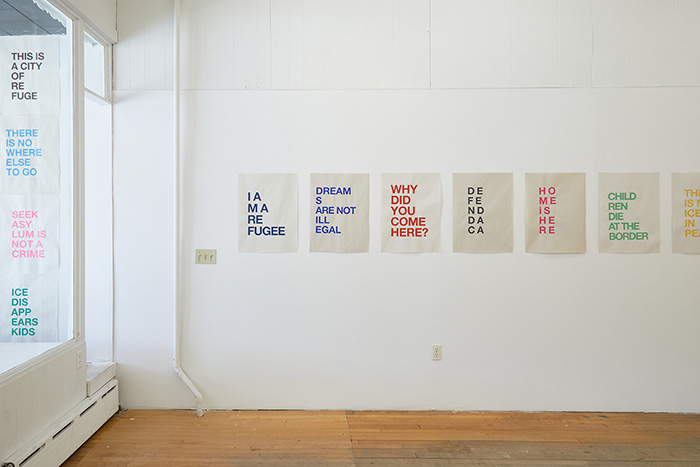
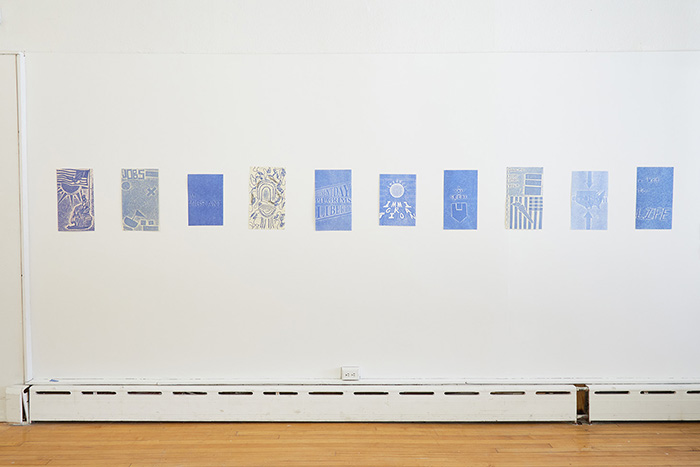
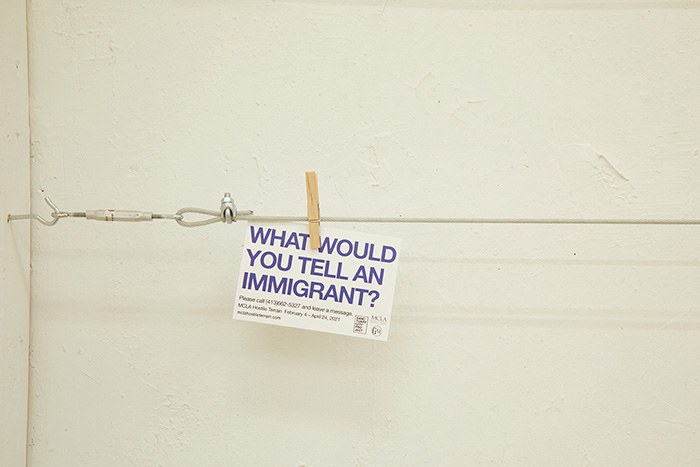
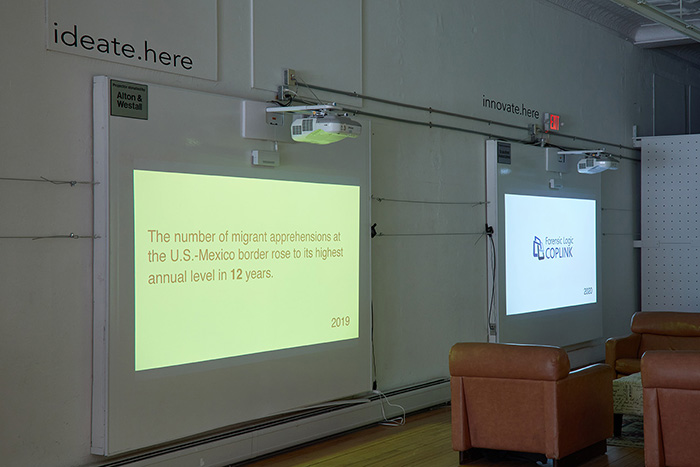
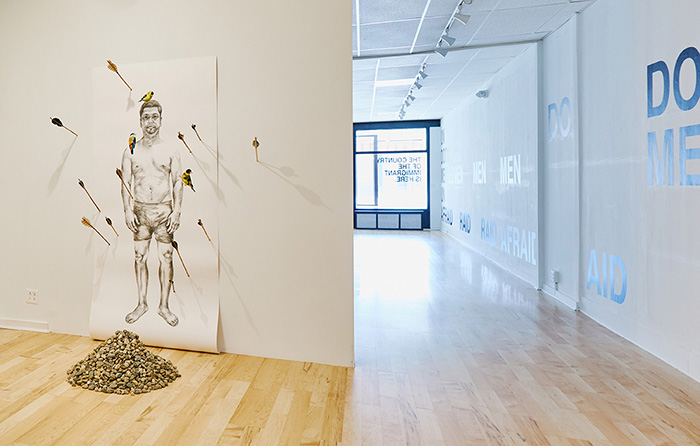
View the Hostile Terrain Gallery Guide HERE.
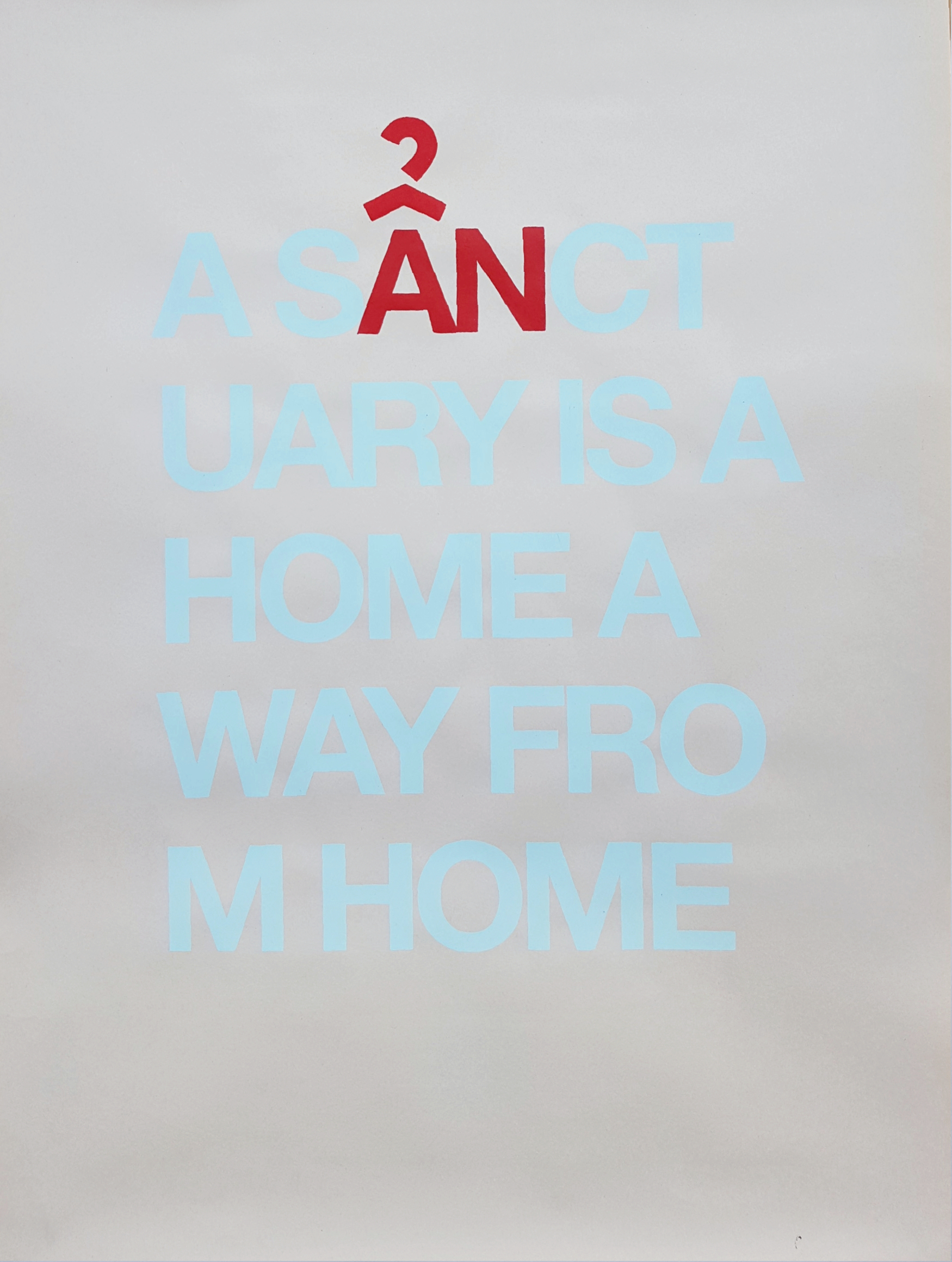
A sẩnctuary is a home away from home.
Ẩn translates to hidden.
We once lived right down the street from storage units wherein Mexican families were being sheltered from immigration authorities. The ones who are at risk are often forced to live in hiding. They wade in precarious waters, and this can lead to a life of solitude and/or loneliness. Although there is a great risk in not asking for assistance, these circumstances foster fear and distrust, which can pull the victims even deeper into hiding, while also deterring them from seeking the help that they need.
Seeking Sanctuary, 2021. Collaboration with Sanctuary City Project. Hand-painted naphthol crimson acrylic over screen prints on newsprint that were made by community members as part of Sanctuary Print Shop
As of Spring 2021, the San Diego and Long Beach convention centers together house approximately 2,500 undocumented unaccompanied minors, most of whom arrived from Central America as they await reunification with their parents and sponsors. Meanwhile, another wave of Vietnamese Americans is deported back to Việt Nam.
While I revisited these posters made years ago by community members for Sanctuary Print Shop, I thought about those whose responses were inscribed upon these pages for all to witness, and the ones who share in their sentiment. I wondered about their relationships to the ones who are at-risk for deportation. I considered their fears and their courage, and the things that they and their families might do to sustain the hopes that they have for a more equitable future. And I lamented for our Vietnamese American community members and our neighbors from beyond, who have known this country as sanctuary, but are now enduring their fight within the immigration system—these who face the threat of being sent back to the country from which they fled persecution, violence, and poverty.
-Trinh Mai
See the project HERE.